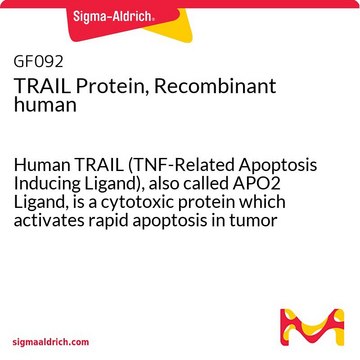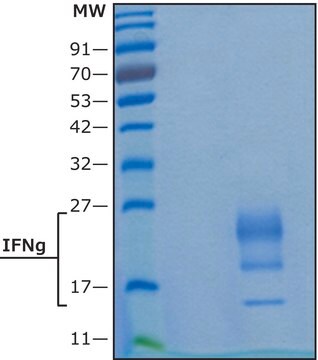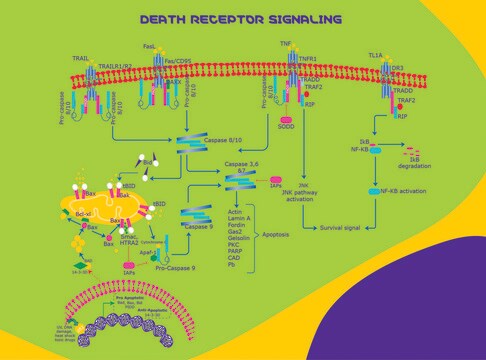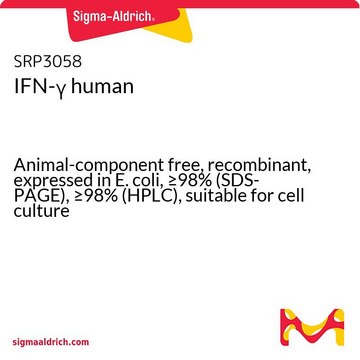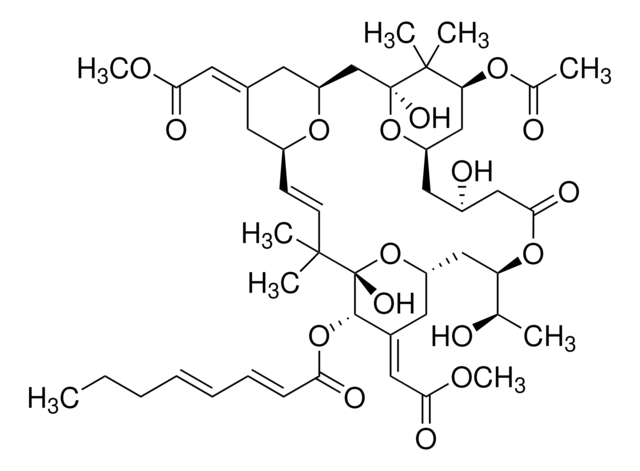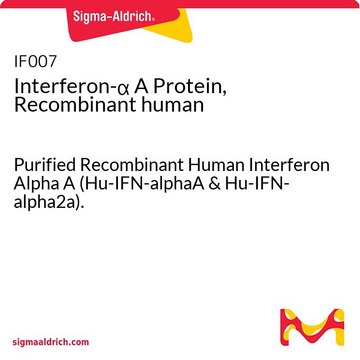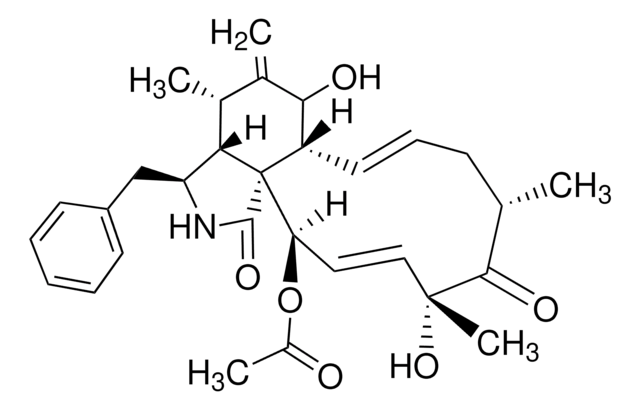SRP3237
TRAIL from mouse
recombinant, expressed in E. coli, ≥95% (SDS-PAGE), ≥95% (HPLC), suitable for cell culture
Synonym(s):
Apo2 Ligand, TL2, TNF-related apoptosis-inducing Ligand, TNFSF10
About This Item
Recommended Products
biological source
mouse
recombinant
expressed in E. coli
Assay
≥95% (HPLC)
≥95% (SDS-PAGE)
form
lyophilized
potency
40.0-60.0 ng/mL ED50
mol wt
20.0 kDa
packaging
pkg of 50 μg
technique(s)
cell culture | mammalian: suitable
impurities
<0.1 EU/μg endotoxin, tested
color
white
UniProt accession no.
shipped in
wet ice
storage temp.
−20°C
Gene Information
mouse ... TNFSF10(22035)
Related Categories
General description
Biochem/physiol Actions
Sequence
Physical form
Reconstitution
Storage Class Code
11 - Combustible Solids
WGK
WGK 3
Flash Point(F)
Not applicable
Flash Point(C)
Not applicable
Regulatory Listings
Regulatory Listings are mainly provided for chemical products. Only limited information can be provided here for non-chemical products. No entry means none of the components are listed. It is the user’s obligation to ensure the safe and legal use of the product.
JAN Code
SRP3237-50UG:
Choose from one of the most recent versions:
Certificates of Analysis (COA)
Don't see the Right Version?
If you require a particular version, you can look up a specific certificate by the Lot or Batch number.
Already Own This Product?
Find documentation for the products that you have recently purchased in the Document Library.
Our team of scientists has experience in all areas of research including Life Science, Material Science, Chemical Synthesis, Chromatography, Analytical and many others.
Contact Technical Service